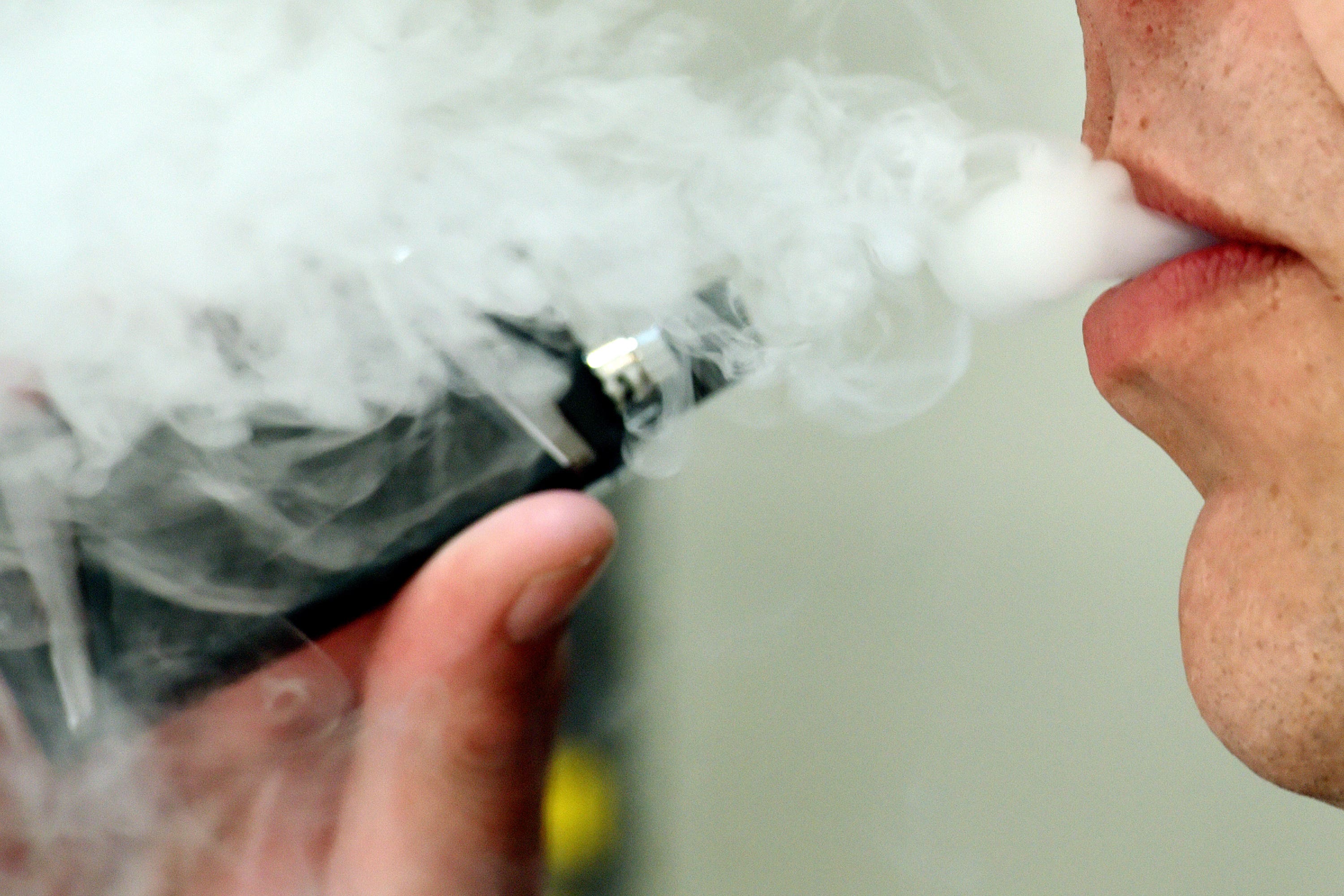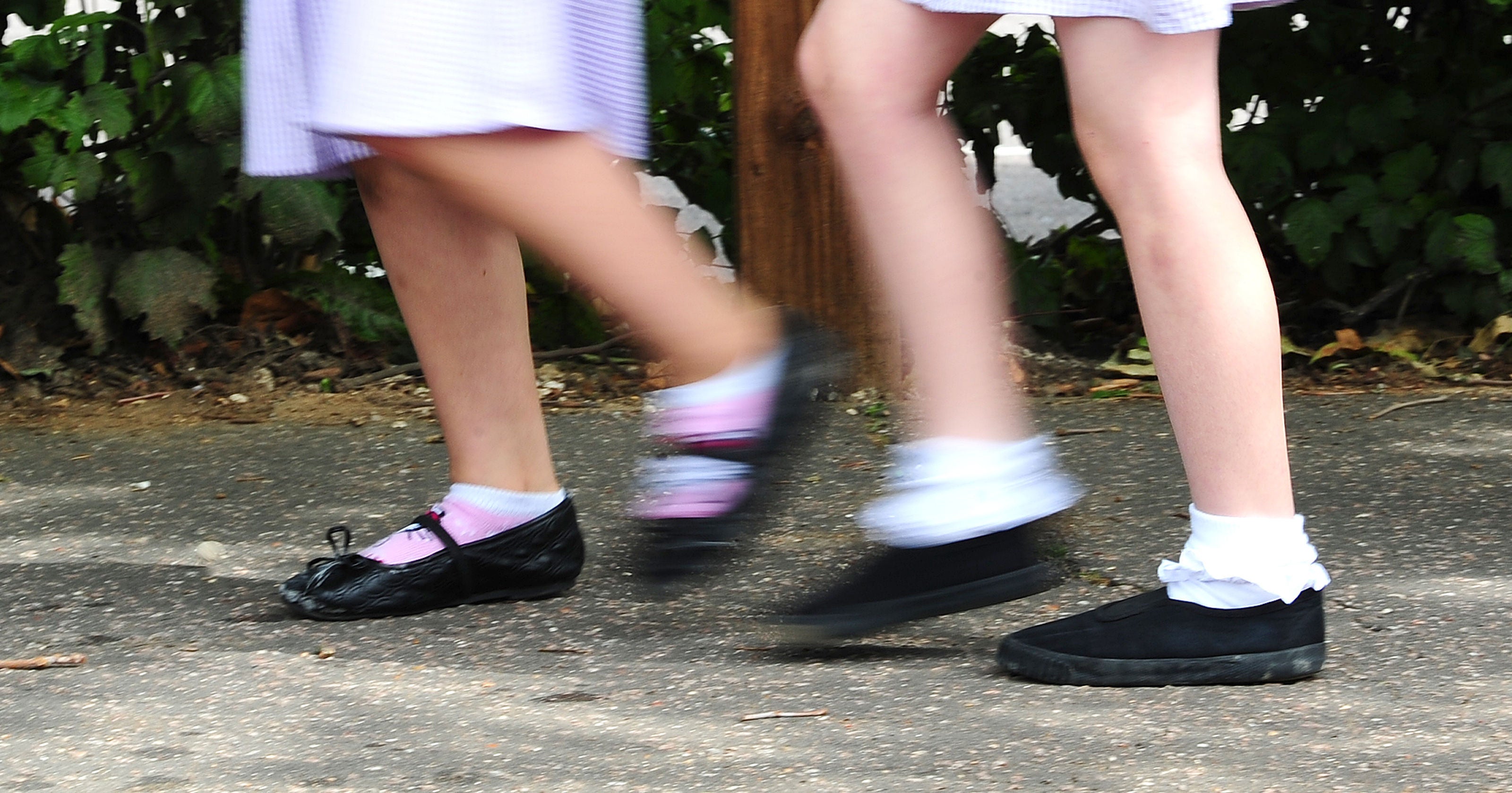Girls in UK are drinking, vaping and smoking more than boys
In one of the largest studies of its kind the WHO examined data from 280,000 children aged 11, 13 and 15 from 44 countries who were asked about their use of cigarettes, vapes and alcohol
Your support helps us to tell the story
From reproductive rights to climate change to Big Tech, The Independent is on the ground when the story is developing. Whether it's investigating the financials of Elon Musk's pro-Trump PAC or producing our latest documentary, 'The A Word', which shines a light on the American women fighting for reproductive rights, we know how important it is to parse out the facts from the messaging.
At such a critical moment in US history, we need reporters on the ground. Your donation allows us to keep sending journalists to speak to both sides of the story.
The Independent is trusted by Americans across the entire political spectrum. And unlike many other quality news outlets, we choose not to lock Americans out of our reporting and analysis with paywalls. We believe quality journalism should be available to everyone, paid for by those who can afford it.
Your support makes all the difference.Girls in the UK are drinking, smoking and vaping more than boys, a major new study by the World Health Organisation (WHO) has found.
In one of the largest studies of its kind, the WHO examined data from 280,000 children aged 11, 13 and 15 from 44 countries who were asked about their use of cigarettes, vapes and alcohol.
The research found that girls in the UK were drinking, smoking and vaping more than boys, and that vaping had replaced smoking as a dangerous recreational activity for children.
It also revealed that two-fifths of girls in England and Scotland have vaped by the age of 15, which is higher than in a number of other developed countries, including France, Austria, Germany, Albania, Spain, Canada and Norway.
The UK also appears to have a more widespread issue with under-age vaping than other countries, with girls in the UK more likely to have used a vape by the age of 15 than the average for all 44 countries in the study.
Professor Sally Kendall, from the University of Kent who worked on the study, said one reason that girls were drinking, smoking and vaping more than boys, could be a “societal change towards girl power” and a “narrowing of stereotypical gender behaviours such as alcohol use.”
She added: “What our data shows is that alongside the alcohol, smoking and vaping behaviour is that girls are also experiencing a lower life satisfaction, greater sense of loneliness and a lower sense of well-being than boys.
“Our wider analysis also indicates that these factors are associated with low family affluence, so girls from poorer families are also likely to respond more negatively.

“This suggests there is a more holistic understanding of health behaviours needed than simply girls smoking or drinking more than boys.”
The study also revealed that children aged 11 and 13 in England are the most likely to have ever drunk alcohol compared with youngsters in all the other countries surveyed. Compared with other European countries, rates of drunkenness in the UK were high, particularly among girls.
At the age of 11, England tops the global chart, with 34 per cent of girls and 35 per cent of boys saying they have drunk alcohol.
In addition, 55 per cent of girls and 56 per cent of boys in England from higher-income families say they have drunk alcohol. The figures for lower income households are 50 per cent of girls and 39 per cent of boys.
Meanwhile, children in Scotland and Wales are more likely to have ever smoked cannabis than those in many other countries. Both countries are in the top five globally.
The survey covered youngsters living in Europe, Central Asia and Canada, and included more than 4,000 children in England, some 4,000 in Scotland and children in Welsh schools.
Dr Jo Inchley, international coordinator for the study, called Health Behaviour In School-Aged Children, and from the University of Glasgow, suggested some of the UK data is concerning.

She said: “Vaping in the UK is higher than the average across all the countries that took part in the survey as a whole.
“I guess that’s a little bit concerning, and we’ve certainly seen quite marked increases in vaping in Scotland over the last four years... lifetime use of e-cigarettes has more than doubled in Scotland since 2018.
“So there’s two areas for concern. One is that our levels are higher than elsewhere in Europe and, secondly, it looks like the trends are worsening quite substantially over a relatively short period of time in the UK.”
Dr Inchley said one driver of increasing vape use may be their availability and low cost.
“Disposable vapes seem to be fairly readily accessible to young people and schools are reporting that that’s a major issue that they’re having to deal with on a day-to-day basis. Young people are telling us that too.
“Having ready access to any kind of substance like that obviously makes it more attractive and available, so that is a big issue.
“Some of the policy responses we’re seeing now from governments across the UK are really positive in that respect, because we do need to address the issue of availability and accessibility.”
She added: “The big concerns are around vaping, but also there’s some evidence that alcohol use might be going up again, amongst girls in England in particular.
“And we’re seeing that across some other European countries as well.
“So that’s quite interesting to explore as well, particularly, I think, in terms of Covid and post-Covid recovery and the impact that Covid has had on particularly that sort of age group.”
She suggested this may be “linked to the mental health crisis” among children who went through the pandemic.
Dr Hans Kluge, WHO regional director for Europe, said the widespread use of harmful substances among children “is a serious public health threat”.
A UK government spokesperson said: “The health advice is clear - smoking, vaping and underage drinking can be damaging for young people and their development. That is why there are age restrictions on the sale of these products.
“As a government, we are creating the UK’s first Smokefree Generation. Our landmark Tobacco and Vapes Bill will make it an offence to sell tobacco products to anyone born after 1 January 2009 and includes powers to limit flavours, packaging and displays of vapes to reduce the appeal to children.”
Additional reporting by PA

Join our commenting forum
Join thought-provoking conversations, follow other Independent readers and see their replies
Comments